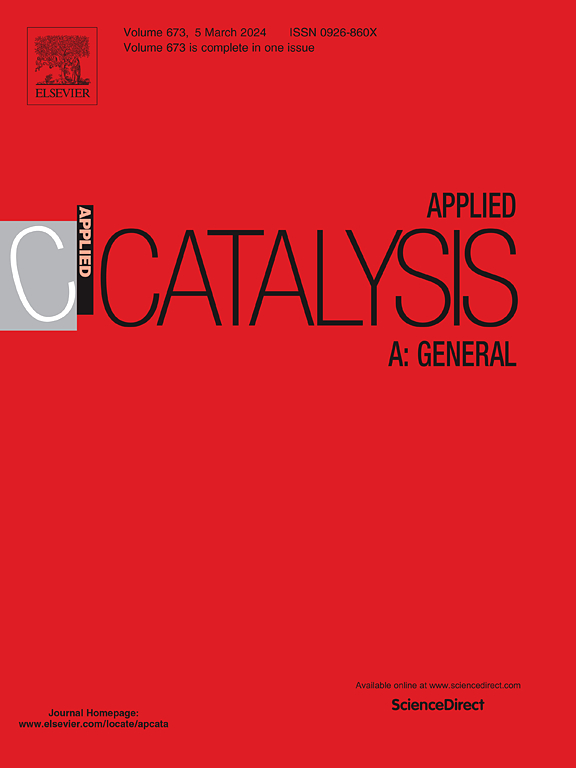串联裂化-加氢低温裂解聚烯烃
IF 4.8
2区 化学
Q2 CHEMISTRY, PHYSICAL
引用次数: 0
摘要
在二氯甲烷中使用氯化铝裂解聚烯烃链,并对所得产品进行烷基化反应,这是一种高效的聚烯烃回收途径。在这项工作的基础上,我们报告了串联裂解加氢系统也可以在温和的温度下有效地将聚烯烃转化为汽油用的轻质烷烃,而不需要碳氢化合物的助反应物。该Lewis酸加氢双功能体系采用无水氯化铝作为酸催化剂,Pd/C作为加氢催化剂,在70℃条件下,3小时内低密度聚乙烯(LDPE)的转化率接近80% %,对汽油用(C4-C12)支链烷烃的选择性为90% + %。通过将吸热裂解反应与放热加氢反应相结合,克服了低温裂解聚烯烃的热力学限制。用加氢代替烷基化,大大提高了体系的碳效率,降低了反应物的成本,降低了反应物和产物的总质量。本文章由计算机程序翻译,如有差异,请以英文原文为准。
Low temperature polyolefin deconstruction via tandem cracking-hydrogenation
The use of aluminum chloride in dichloromethane to crack polyolefin chains in tandem with alkylation of the resulting products has been previously reported as an efficient polyolefin recycling route. Building off this work, we report that a tandem cracking-hydrogenation system also efficiently converts polyolefins into gasoline-range light alkanes at mild temperatures without needing a hydrocarbon co-reactant. This Lewis acid and hydrogenation bifunctional system uses anhydrous aluminum chloride as the acid catalyst and Pd/C as a hydrogenation catalyst to achieve nearly 80 % conversion of low-density polyethylene (LDPE) at 70 °C in three hours, with 90 + % selectivity towards gasoline-range (C4-C12) branched alkanes. By combining the endothermic cracking reaction with the exothermic hydrogenation reaction, the thermodynamic limitations to low-temperature polyolefin deconstruction can be overcome. In using hydrogenation instead of alkylation, the system’s carbon efficiency is greatly improved, the cost of the reactants is reduced and the overall mass of both reactants and products reduced as well.
求助全文
通过发布文献求助,成功后即可免费获取论文全文。
去求助
来源期刊

Applied Catalysis A: General
化学-环境科学
CiteScore
9.00
自引率
5.50%
发文量
415
审稿时长
24 days
期刊介绍:
Applied Catalysis A: General publishes original papers on all aspects of catalysis of basic and practical interest to chemical scientists in both industrial and academic fields, with an emphasis onnew understanding of catalysts and catalytic reactions, new catalytic materials, new techniques, and new processes, especially those that have potential practical implications.
Papers that report results of a thorough study or optimization of systems or processes that are well understood, widely studied, or minor variations of known ones are discouraged. Authors should include statements in a separate section "Justification for Publication" of how the manuscript fits the scope of the journal in the cover letter to the editors. Submissions without such justification will be rejected without review.
 求助内容:
求助内容: 应助结果提醒方式:
应助结果提醒方式:


